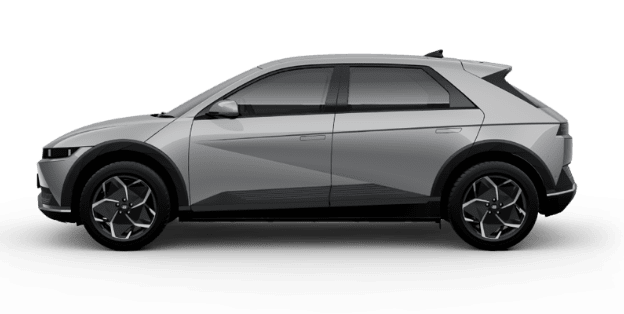Newsroom
Global
Hyundai Motor and Kia’s Robotics LAB Announce Plans to Launch ‘X-ble Shoulder’ at Wearable Robot Tech Day
28 Nov, 2024 10:47 AM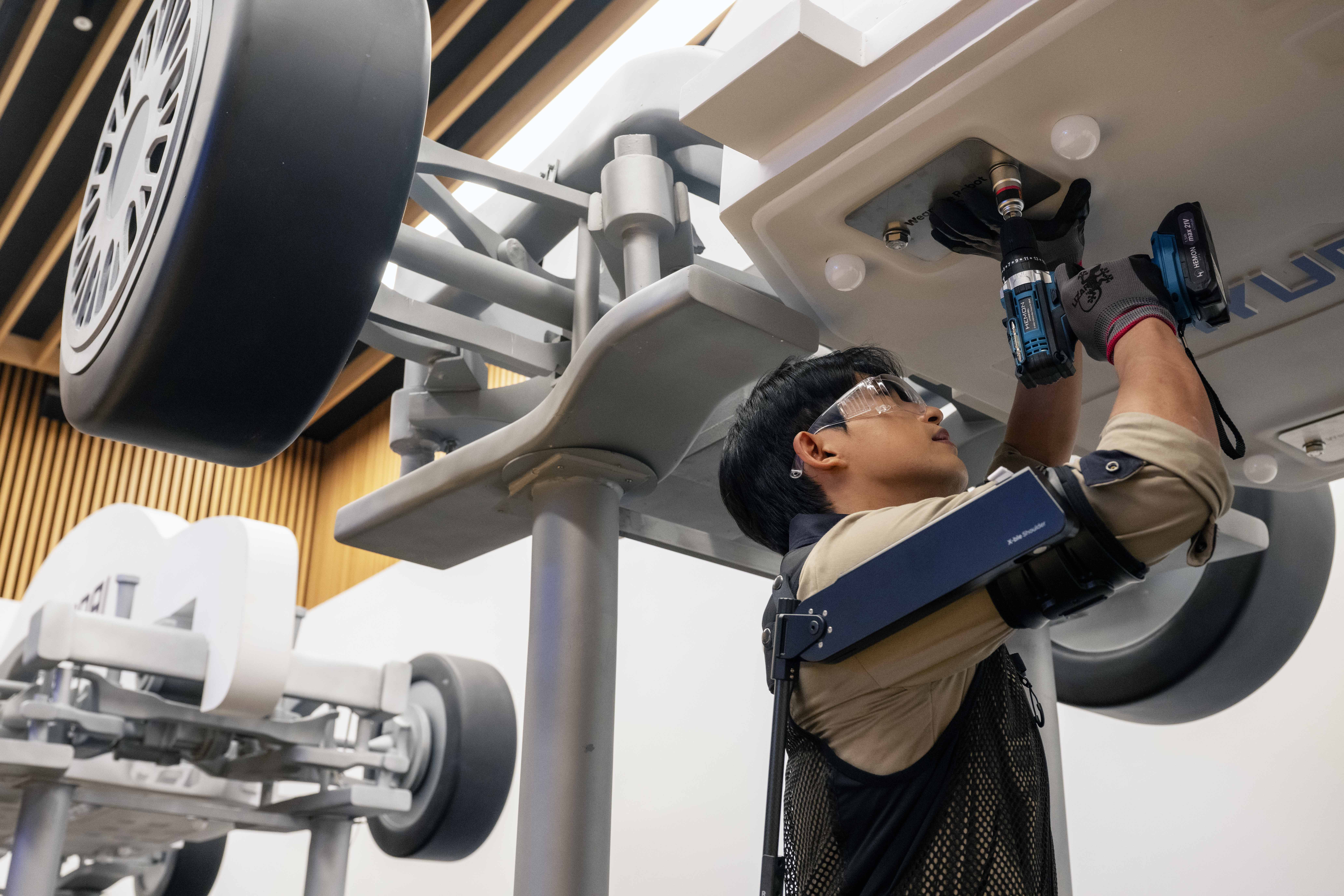
- Hyundai Motor and Kia unveil wearable robot ‘X-ble Shoulder’ to boost industrial efficiency and reduce musculoskeletal injuries
- The wearable robot is designed to assist with overhead work by enhancing upper arm muscle strength and is expected to find use in various industries
- The strong yet lightweight X-ble Shoulder enhances worker comfort by reducing shoulder load by 60% and muscle activity by 30%
- Hyundai Motor and Kia’s Robotics LAB also announced a commercialization plan for X-ble Shoulder, with deliveries expected to begin in the first half of 2025
SEOUL, November 28, 2024 - Hyundai Motor Company and Kia Corporation have unveiled a reliable companion for industrial work, the wearable robot ‘X-ble Shoulder.’ This device, just by being worn, can increase workers’ efficiency and reduce musculoskeletal injuries. Two videos released on Hyundai Motor Group’s YouTube channel show the X-ble Shoulder in action, including product features and the development story.
Hyundai Motor and Kia unveiled the X-ble Shoulder at Wearable Robot Tech Day held at the Hyundai Motorstudio Goyang near Seoul. The X-ble brand — a combination of ‘X,’ symbolizing infinite potential, and ‘able,’ indicating that anything can be realized — heralds a new era in wearable technology.
The X-ble Shoulder, the first product in the X-ble line, is an industrial wearable robot developed by Hyundai Motor and Kia’s Robotics LAB. It heralds a new era in wearable technology. When used in ‘overhead work’ where the arm is raised, it can assist the user’s upper arm muscle strength and reduce the burden on the upper extremity musculoskeletal system.
Hyundai Motor and Kia anticipate the X-ble Shoulder will find use in various industries, including construction, shipbuilding, aviation and agriculture, not just automobiles. Following its domestic launch, the companies plan to gradually expand sales to overseas markets.
In addition to the X-ble Shoulder, Hyundai Motor and Kia plan to develop an industrial wearable robot ‘X-ble Waist’ to assist the waist when lifting heavy loads, and a medical wearable robot ‘X-ble MEX’ for the rehabilitation of the walking impaired.
“The X-ble Shoulder is a wearable robot that leverages the technical capabilities of the Robotics LAB and implements feedback from actual users,” said Dong Jin Hyun, Vice President and Head of Robotics LAB at Hyundai Motor and Kia. “Going forward, we aim to expand the availability of wearable robots, creating products that work naturally with users to enhance their daily lives. By pushing technological boundaries, we will make these beneficial products accessible to more people.”
Enhancing Worker Safety and Comfort with X-ble Shoulder
The X-ble Shoulder can reduce shoulder load by up to 60 percent and anterior/lateral deltoid muscle activity by up to 30 percent reduction to improve the quality of life of workers.
The X-ble Shoulder was designed with user safety as the top priority. It uses carbon composite material and wear-resistant material used in high-end vehicles. Due to the product’s high strength and light weight, it can be used stably without difficulty even for long hours of work. Also, the parts that directly touch the user’s body are designed to protect against bodily injury that can occur in industrial sites by applying impact-resistant material used in the top part of the vehicle’s crash pad.
The modular robotic components and the detachable, washable vest make this product not only easy to manage and adaptable to various work environments, but also compatible with standard work attire across different industries.
The biggest feature of the X-ble Shoulder is that it generates assistive force through the muscle compensation module instead of the electric system with a non-powered torque generation structure. There is no need to charge separately, making it convenient to maintain and manage, and it can be used lightly and safely without a battery.
The X-ble Shoulder’s assistive force is generated by a patented multi-link structure in the muscle compensation module. Each link in the multi-link can be adjusted for optimal assistive force in various work environments. The module is expected to perform around 700,000 folding and unfolding actions yearly in industrial settings.
The X-ble Shoulder comes in two versions: basic and adjustable. The basic version is best for tasks where the posture is not fixed and continues to change and offers up to 2.9 kgf of assistive force. The adjustable version, ideal for tasks that repeat the same movement, allows users to set the angle for maximum torque based on their work posture, providing up to 3.7 kgf of assistive force.
The X-ble Shoulder weighs roughly 1.9 kg and can be sized to fit the wearer. Its body length is adjustable between 406 mm and 446 mm. It allows full arm movement from 0 to 180 degrees without hindering work or rest activities.
User feedback significantly influenced the X-ble Shoulder’s development. A pilot trial conducted from 2022 to 2024 involved approximately 300 workers and health managers from Hyundai Motor and Kia plants. User suggestions, including ease of use, comfort, unrestricted arm movement, adjustable assistive force, and easy cleaning, were incorporated into product improvements and new features.
X-ble Shoulder's commercialization and expansion plans are underway
Hyundai Motor and Kia's Robotics LAB also announced a commercialization plan for X-ble Shoulder. The increase in congenital diseases and accidents is driving the demand for wearable robots in the medical and health care industry, followed by an increase in demand in the manufacturing and defense industry sectors. According to Mordor Intelligence[1], the Wearable Robots and Exoskeletons Market size is estimated at USD 2.55 billion in 2024, and is expected to reach USD 10.25 billion by 2029, growing at a CAGR of 32.05 percent.
There is yet no dominant leader in the wearable robot market, and Hyundai Motor and Kia’s Robotics LAB is looking for opportunities to capture the market.
The first step is to apply it to Hyundai Motor and Kia’s production and maintenance departments. Then, from the mid-2020s onward, they plan to expand sales not only to the 27 affiliates of Hyundai Motor Group but also to external companies. In 2026, they aim to enter overseas markets, such as Europe and North America, based on domestic market sales experience, and plan to expand sales to other industries, such as construction, shipbuilding, aviation, agriculture and automobiles.
Companies interested in purchasing the X-ble Shoulder can inquire via the Robotics LAB’s official website. The technology, available in limited quantities, is exclusively for corporate customers. The Robotics LAB offers X-ble Shoulder Integrated Consulting, assisting companies in making data-driven decisions about introducing the wearable robot into their operations.
The consultation process includes Process Analysis, which involves analyzing data related to muscle and joint load during work, and Process Suitability Evaluation, which uses specific indicators to assess the suitability of applying the X-ble Shoulder. Post-consultation production and delivery is expected to begin in the first half of 2025.
Proprietary technologies developed by Hyundai Motor and Kia’s
Robotics LAB are already enhancing convenience and productivity in the real
world. Since June, the Factorial Seongsu building in Seoul has been leveraging the
Lab’s technologies, such as delivery robots, automatic charging robots for EVs, and advanced facial recognition systems, to minimize unnecessary human actions and create an environment where people can focus on their work. Moving forward, the Lab plans to expand its product lineup and develop a Robotics Total Solution, with the aim of fostering a society where humans and robots coexist harmoniously.
[1] https://www.giiresearch.com/report/moi1438479-wearable-robots-exoskeletons-market-share-analysis.html
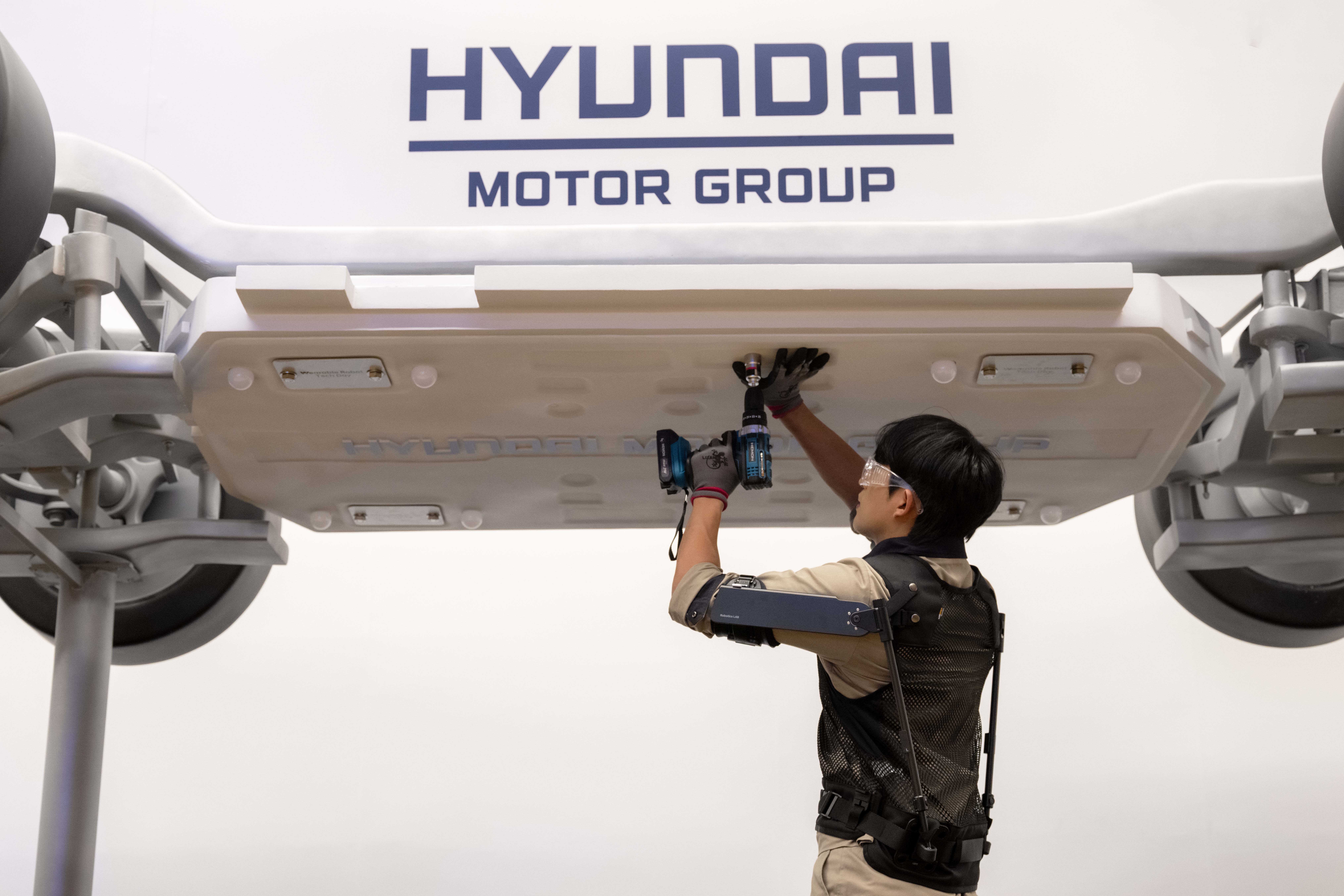
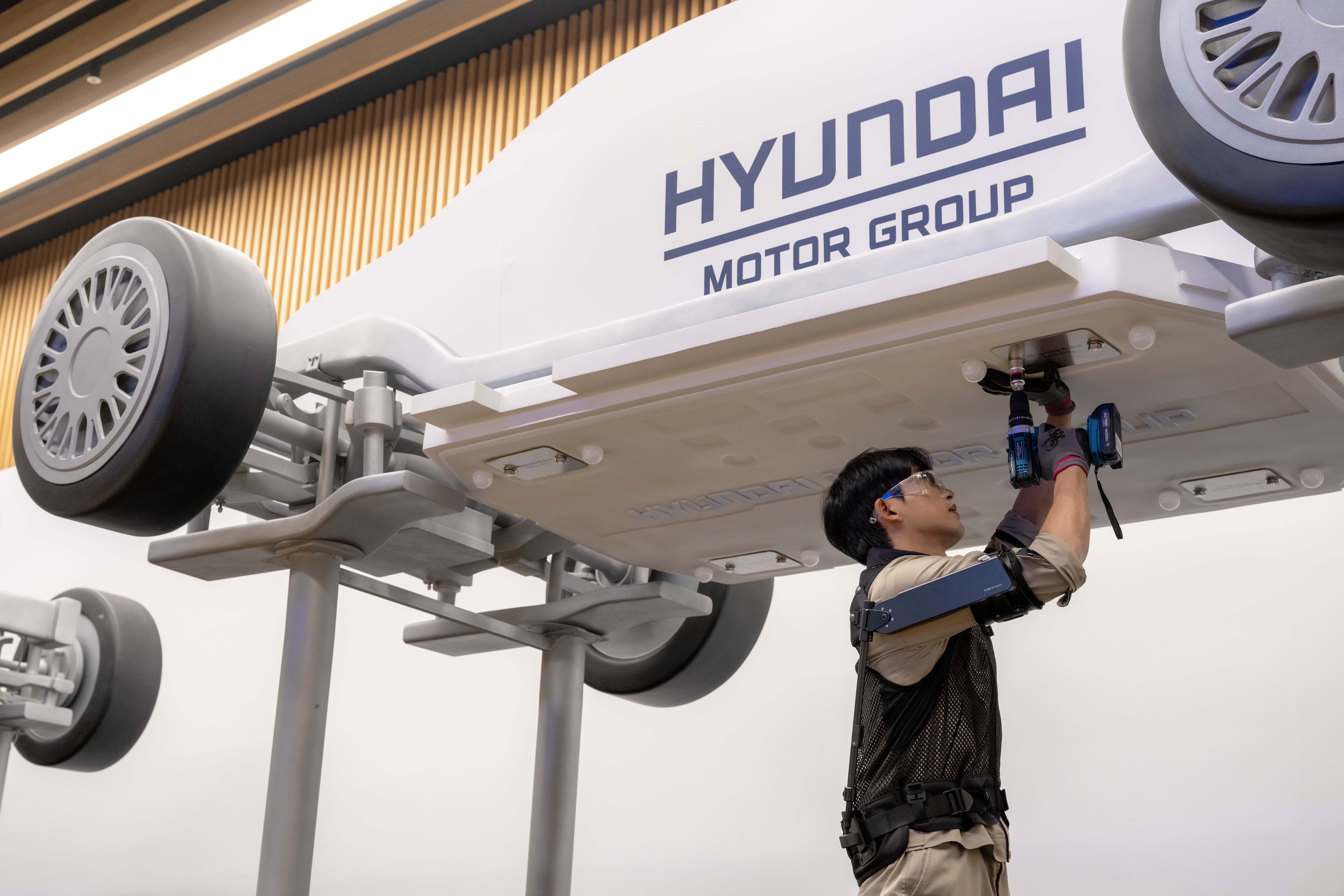
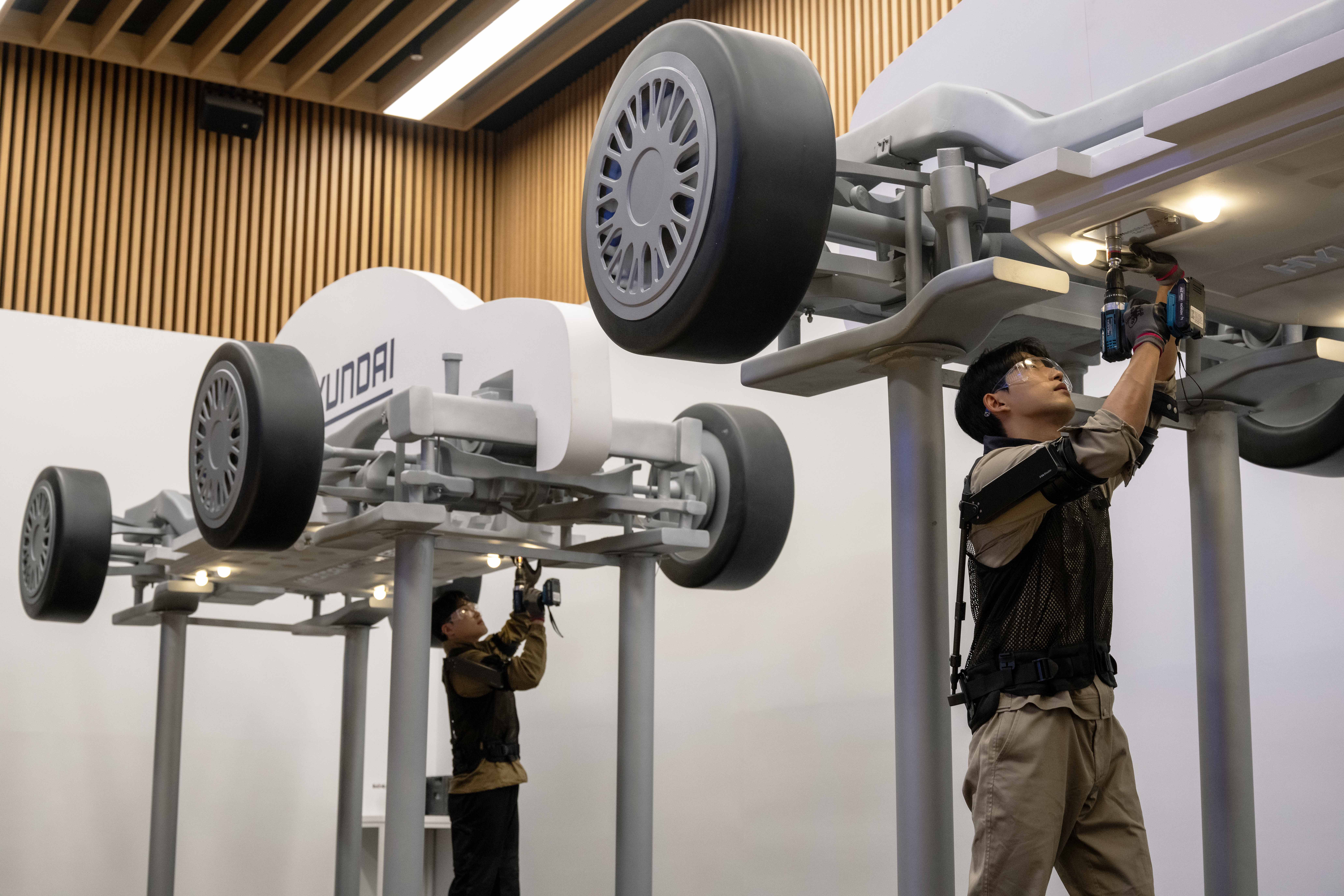
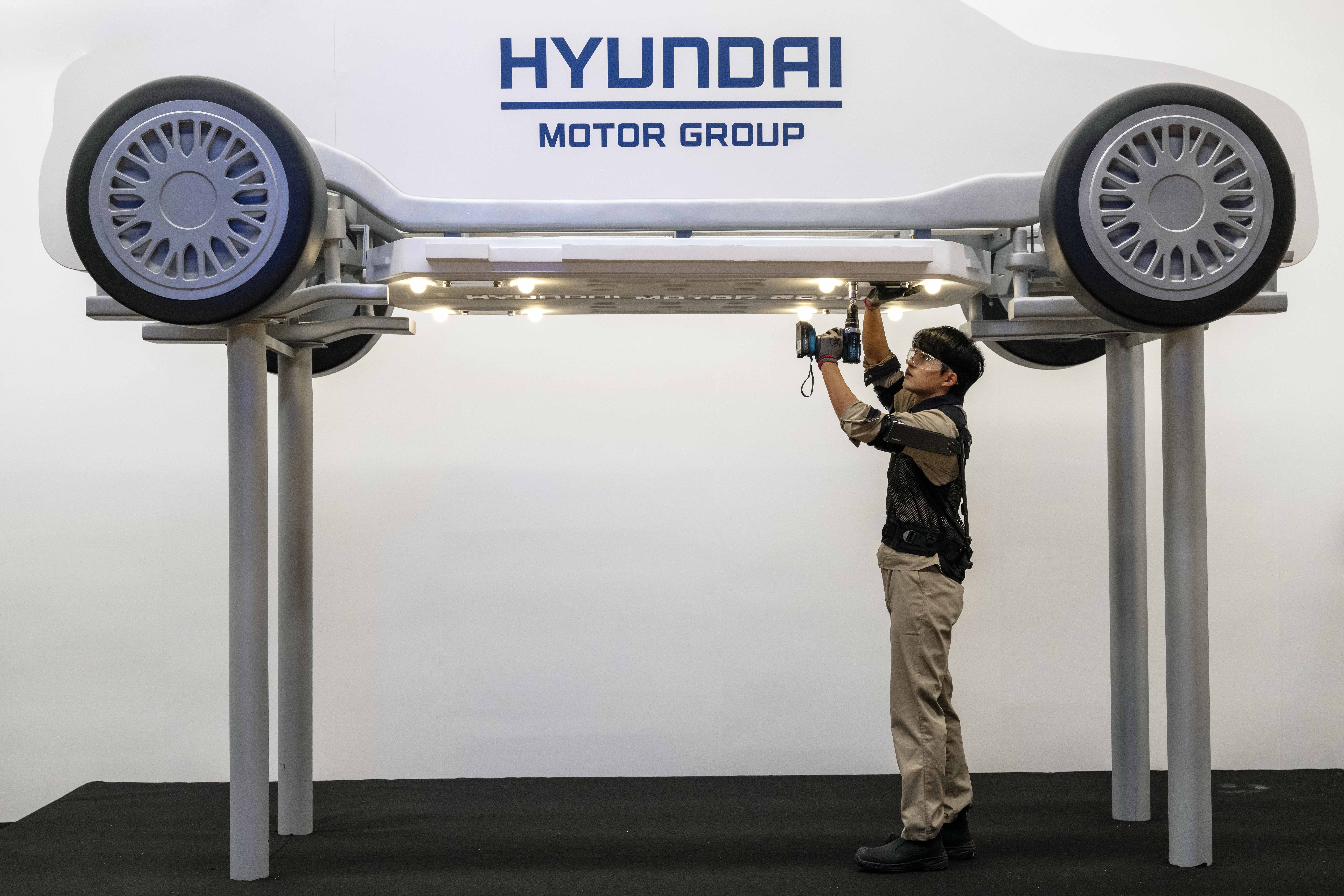
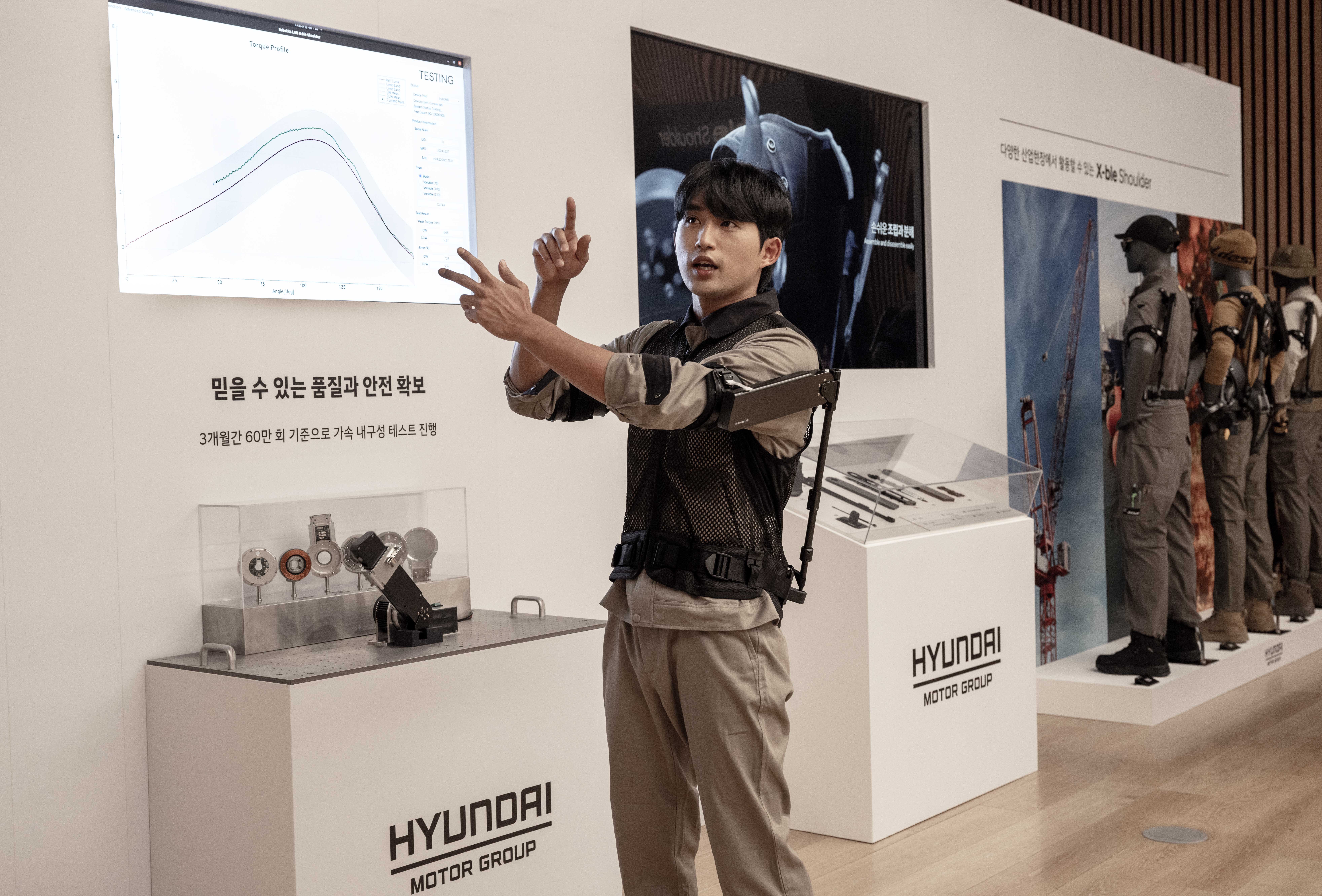
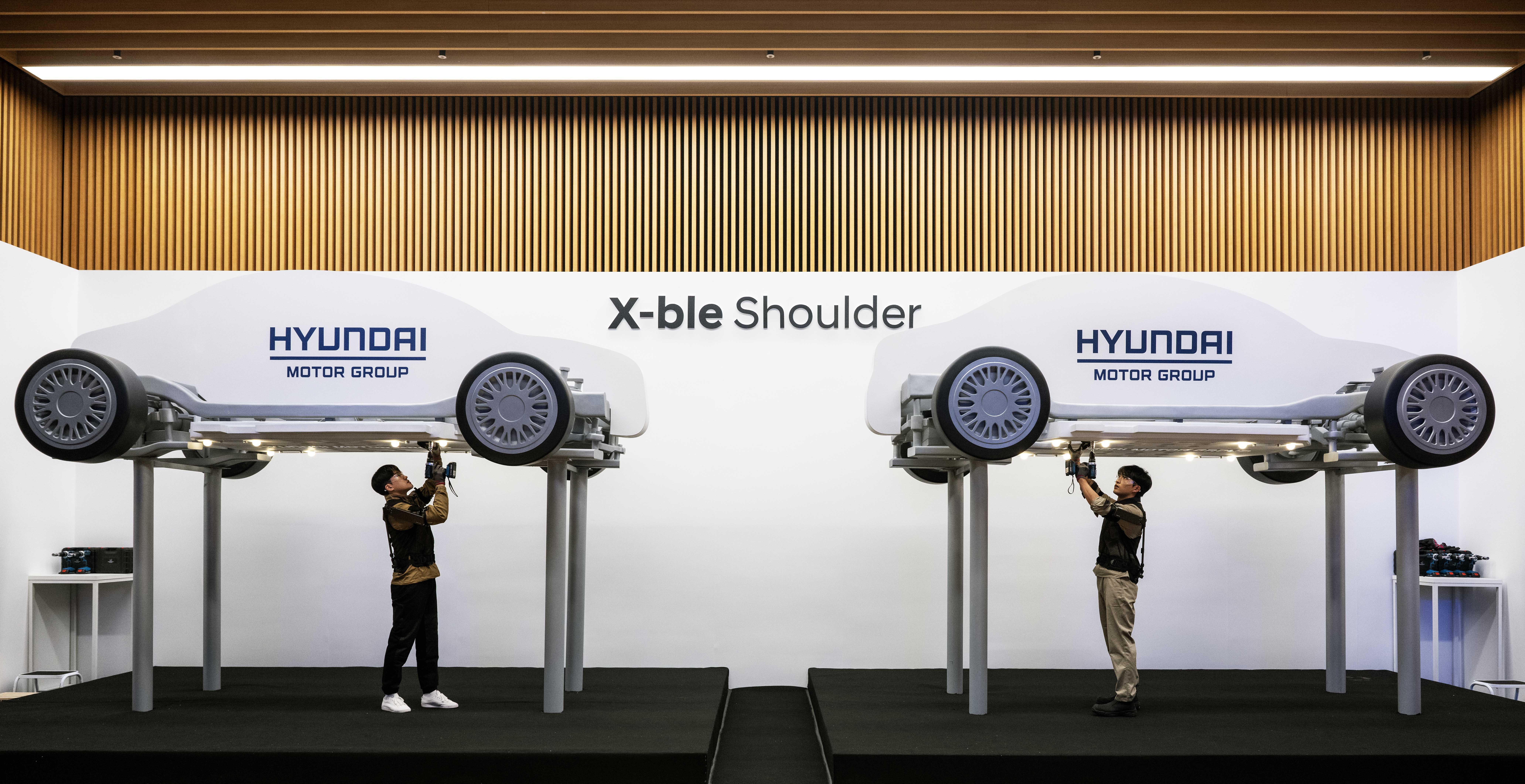
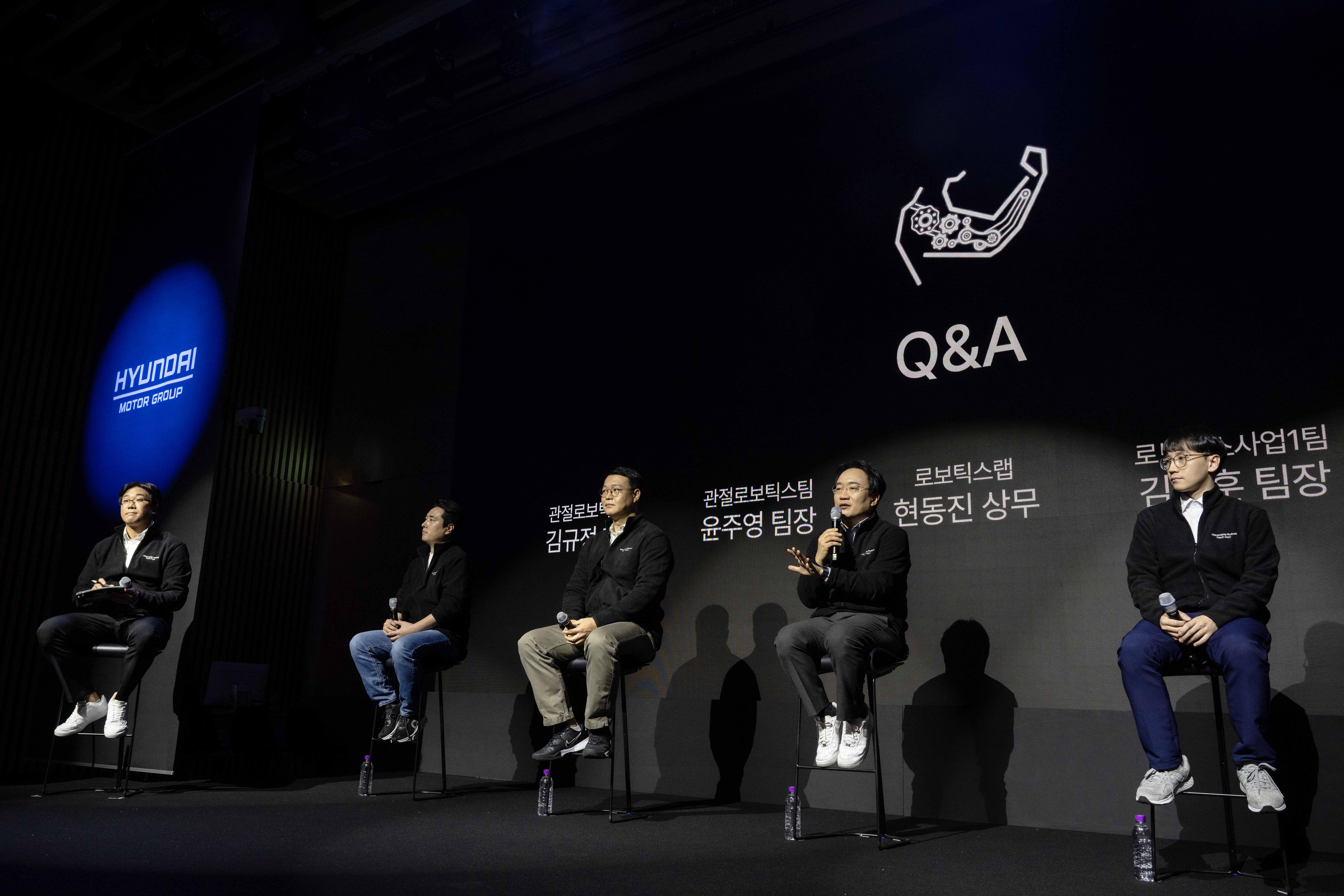
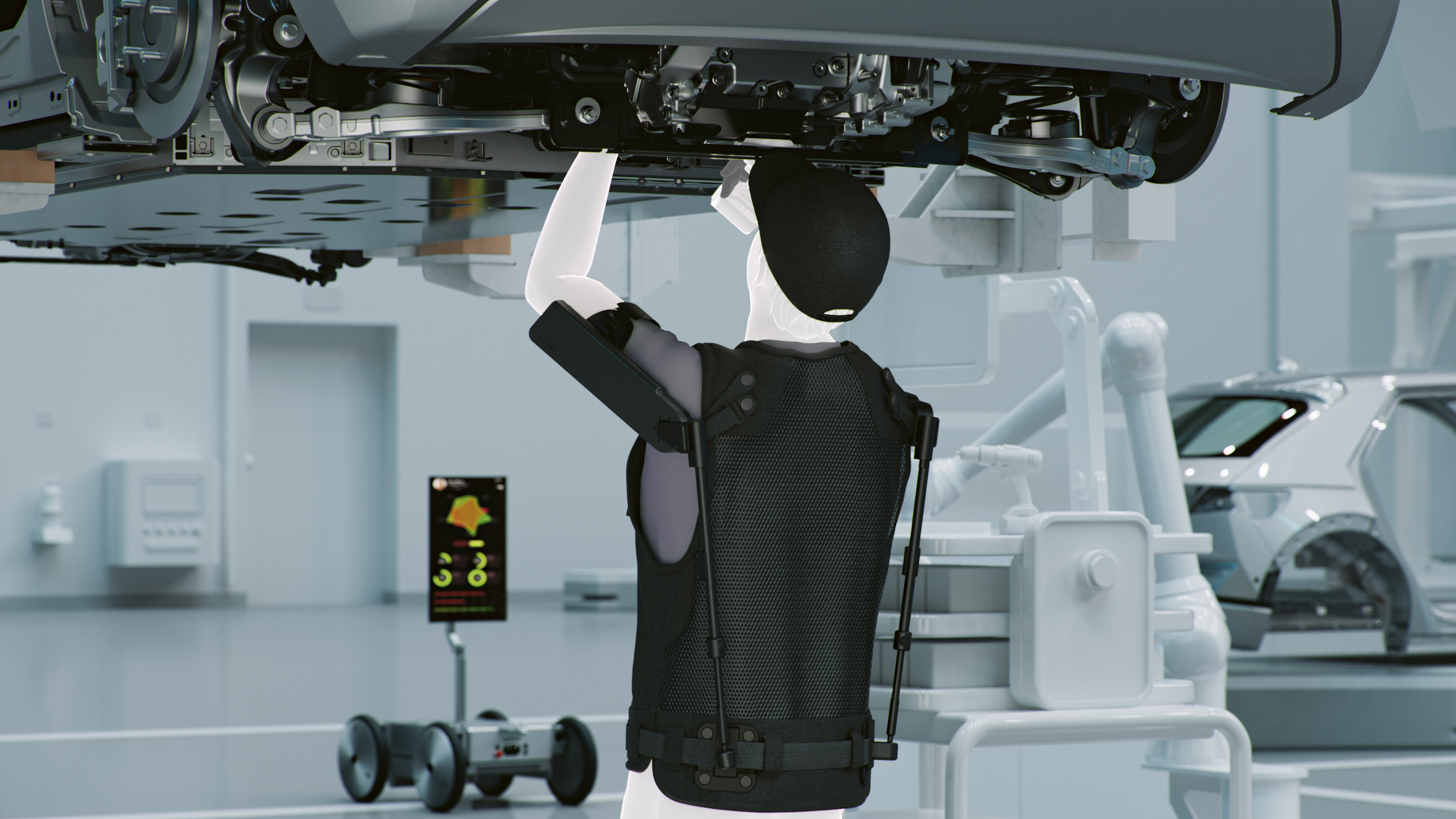
Contact us
- (+65) 6335 3984
(10:00am – 6:00pm, Mon – Sun)

